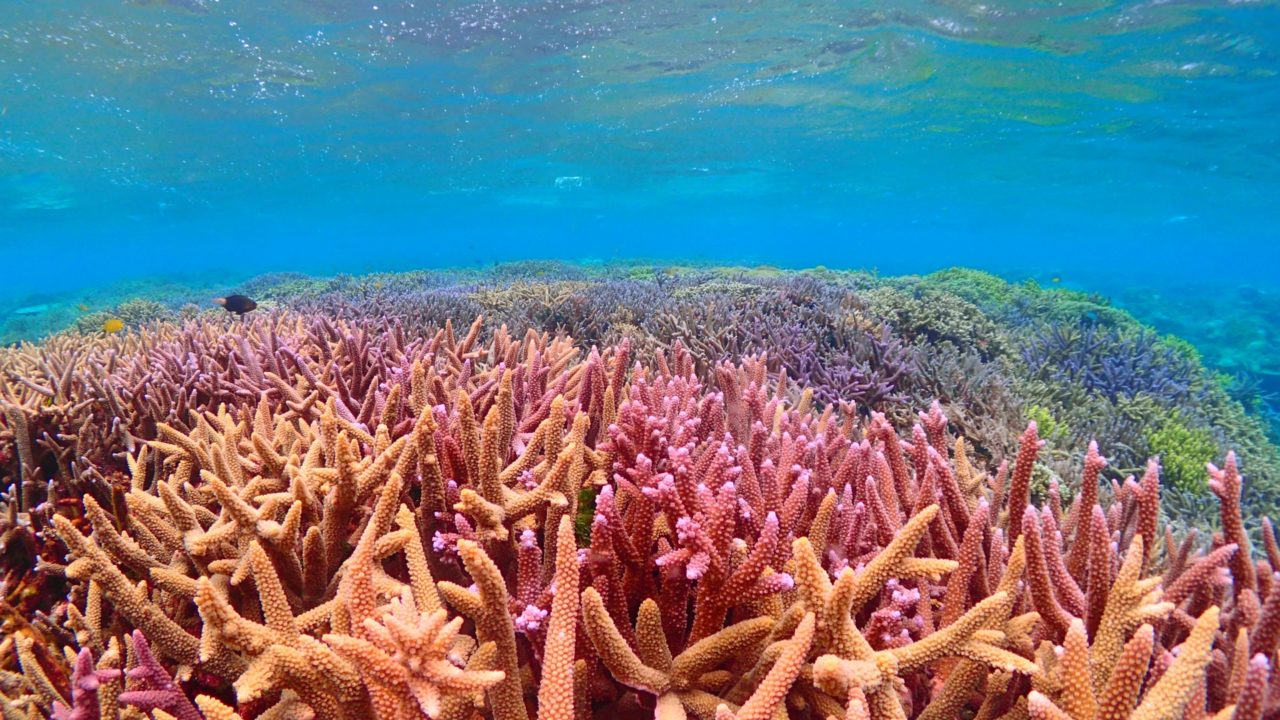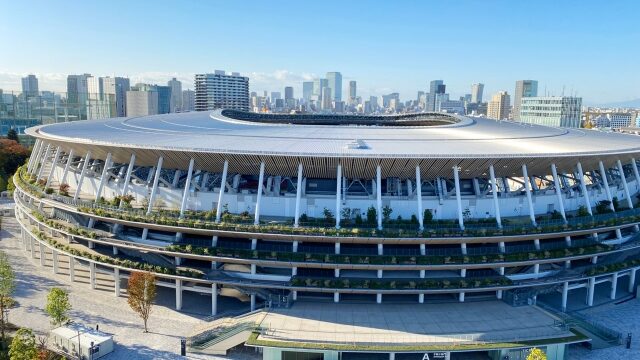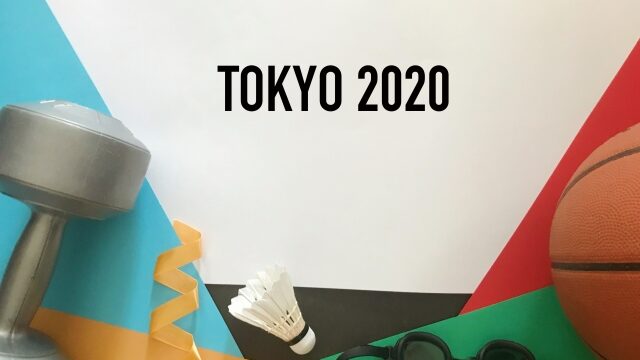ウイルスのニュースが未だ多くいですね。VOAも同じくといった印象です。ちょっと違うニュースを選び、かつ大学入試などで問題になりやすそうな題材も環境問題のニュースを訳していきます。
サンゴが白くなり、時には死んでしまうということみたいですが…。よろしければ最後まで読んでいってください。
Australia’s Great Barrier Reef Suffers Most Severe Coral Bleaching
「オーストラリアのグレートバリアリーフがひどい白化現象に見舞われる」
June 11, 2020
(2020年6月11日)
Scientists say Australia’s Great Barrier Reef suffered its most severe coral bleaching event in March.
(科学者たちは3月、オーストラリアのグレートバリアリーフでとてもひどいサンゴの白化現象が起きたと述べました。)
Coral are small marine animals that live together and form large hard structures called reefs. Bleaching usually happens when ocean water gets too warm causing corals to release the healthy algae living in their tissues. The process turns coral white and makes them sick, sometimes killing them.
(サンゴは、共生してリーフと呼ばれる大きく固い構造を形成している海の小さい生き物です。白化は通常、海水温が上がることによってサンゴたちが体の組織内に住んでいる健康な藻類を放出してしまう時に起こります。その過程でサンゴは白くなり、病気になり、時に死んでします。)
Reefs are critically important to the health of the ocean and all the life it holds.
(リーフは海の健康とそこにいる全ての生物にとってとても重要です。)
The latest finding about coral bleaching came from researchers at James Cook University in Queensland, Australia. The Great Barrier Reef covers about 348,000 square kilometers. It contains the world’s largest collection of coral reefs and is home to thousands of different kinds of sea life.
(オーストラリアのクイーンズランド州にあるジェームズ・クック大学の研究者がサンゴの白化について新たな発見をしました。グレートバリアリーフは面積が348,000平方キロメートルあります。そこには世界最大のサンゴ礁が集まっており、何千種類もの海洋生物たちの家となっています。)
Researchers say the most recent coral bleaching event is the result of extremely hot temperatures in the area over the past few months.
(研究者たちは、直近のサンゴの白化現象は過去数ヶ月のこの地域の非常に高い気温によるものだと述べました。)
Terry Hughes is director of the ARC Centre of Excellence for Coral Reef Studies at James Cook University. He told the Reuters news agency that February had the highest temperatures since 1900, when record keeping began.
(テリー・ヒューズ氏はジェームス・クック大学のthe ARC Center of Excellence of Coral Reef Studiesの理事です。彼はロイター通信に、観測がはじまった1900年以来、2月に最高気温を記録したと語りました。)
“We saw record-breaking temperatures all along the length of the Great Barrier Reef, there wasn’t a cool portion in the north, or a cool portion in the south this time around,” Hughes said.
(「我々は、グレートバリアリーフの全長にわたって記録的な気温を目の当たりにしました。今回は北にも南にも涼しい部分はありませんでした。」とヒューズ氏は述べました。)
“The whole Barrier Reef was hot so the bleaching we have seen this year is the most extensive so far.” Hughes added that he is now almost sure that the reef cannot recover to what it looked like even five years ago, let alone thirty years ago.
(「バリアリーフ全体が暑かったので、我々が今年見た中で現状最も白化が広範囲に渡っています。」ヒューズ氏はリーフが30年前は言うまでもなく、5年前のような状態にも回復できないことはほぼ確実だろうと付け加えました。)
Hughes warned that if global warming activity continues at the present rate, the Great Barrier Reef faces the possibility of becoming completely destroyed.
(ヒューズ氏は、もし地球温暖化の進行が今のまま進行するなら、グレートバリアリーフは完全に破壊されるという可能性に直面すると警告しました。)
“We will have some sort of tropical ecosystem, but it won’t look like coral reef – there might be more seaweed, more sponges, a lot less coral – but it will be a very different ecosystem.”
(「(これから先、)熱帯生態系は何種か存在していくことになるだろうが、サンゴ礁のようなものではないだろう。海藻が増え、海綿動物が増え、サンゴはとても少なくなるかもしれない。そしてそれは全く異なった生体系となるだろう。」)
I’m Bryan Lynn.
(私はブライアン・リンです。)
Reuters news agency reported on this story. Bryan Lynn adapted the report for VOA Learning English. Caty Weaver was the editor.
(ロイター通信がこの話題を報道しました。ブライアン・リンがVOAラーニングイングリッシュに適合させました。ケイティ・ウィーバーが編集者でした。)
いかがでしたか?訳す上では最後の段落“We will have 〜 がきれいに訳すのが少しこれでいいのかなと思いましたが、まずまずにはまとまったと思います。
グレートバリアリーフは写真でしか見たことがないのでいつか見てみたいです。その前に全て白化してしまわないで欲しいなと…。
最後まで読んでいただきありがとうございました。







